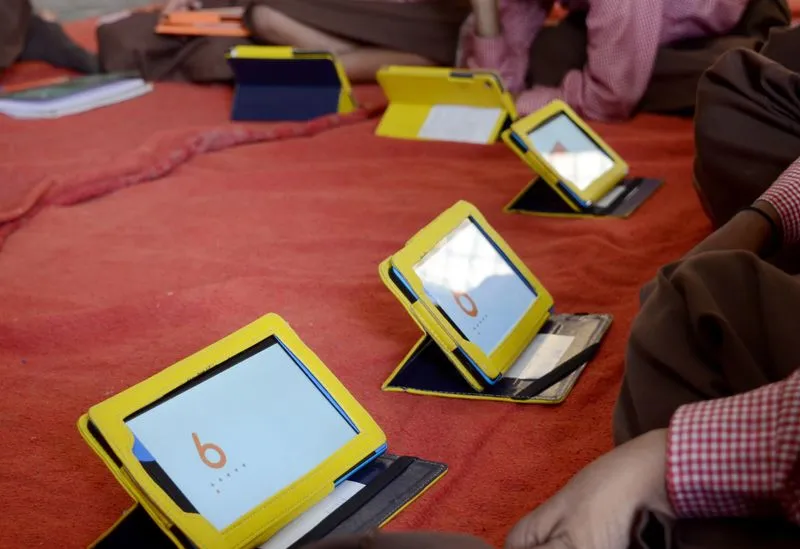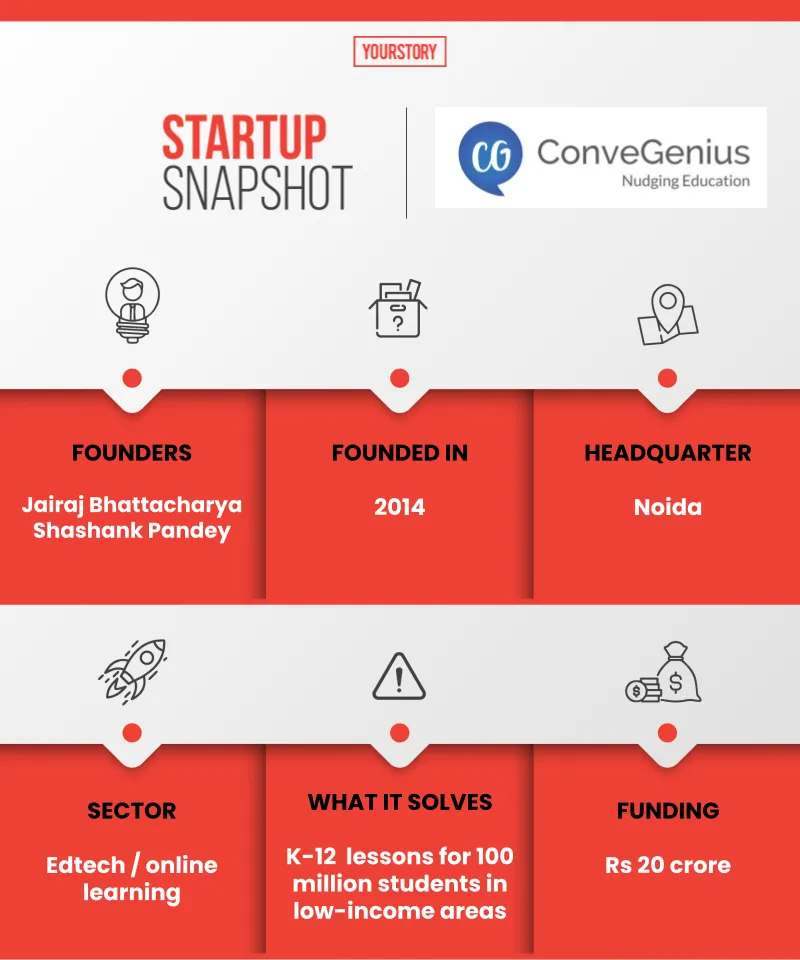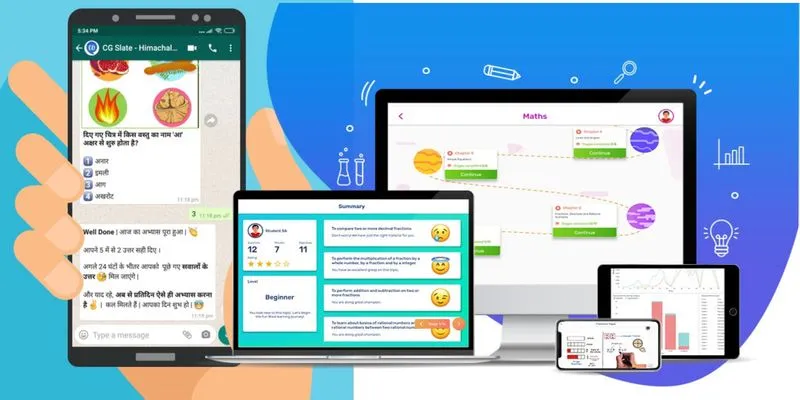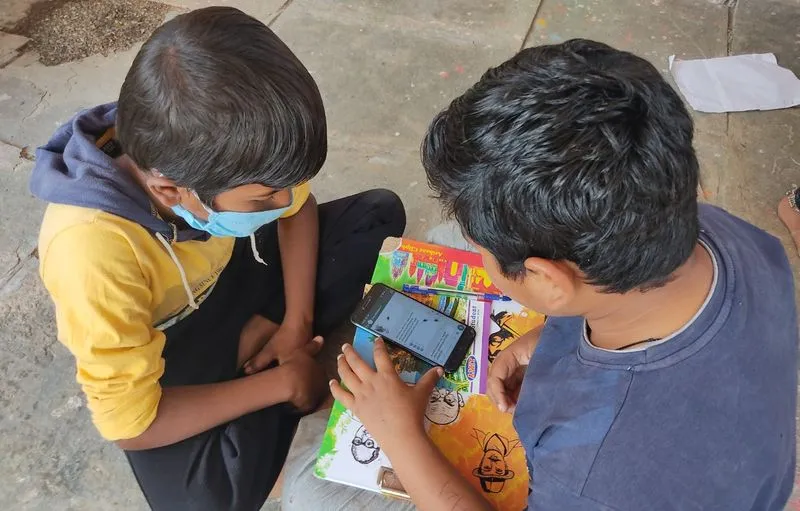Jairaj Bhattacharya dipped his toes in the education sector back in 2009.
As a project officer at Singapore’s Nanyang Technological University, he was leading a cross-country team that was tasked with developing a low-cost tablet ($70 apiece) tailored for rural education in India.
Later, they would go on to collaborate with the ‘826 Los Angeles’ Book Project to create software for delivering learning content and pedagogy in Indian villages.
After “exploring edtech for the bottom of the pyramid from a research lens”, Jairaj realised that companies working in this segment were mostly non-profits like Khan Academy, and others.

Jairaj Bhattacharya, Founder and CEO, ConveGenius
“But discovery was the real issue; only free content was not enough. So, distribution access was the problem to solve,” he tells YourStory.
In 2014, he returned to India and founded ConveGenius. Shashank Pandey, his friend of 14 years, joined him as the startup’s co-founder.
Jairaj, Founder and CEO, ConveGenius, says, “For a decade, edtech will continue to be expensive in India because of the high cost of customer acquisition. Hence, we went with a contrarian logic to provide access to quality adaptive learning to 100 million students at the bottom of the pyramid. That was the blue ocean we found.”
Tab-based learning for rural India
In the first two years, ConveGenius focused on building a tab-based learning solution, or “personalised learning in an offline device”.
The product, CG-Slate, was “well-received” in government schools, low-fee private schools, and after-school learning centres across 16 states in India.
The Noida-based startup partnered with tablet manufacturers – Samsung and Lava – to pre-install its software, and curated content from a bunch of learning companies like Mexus Education, Pratham Books, Chippersage, and so on.

ConveGenius tied up with government schools to deliver tablet-based learning
Then Jio happened in 2016, and we started rethinking our product, and K12 learning journeys through videos, games, assessments, and interactive books. We went from a tab-based approach to an app-based one,” says the founder.
ConveGenius operated as a social enterprise that would adopt government schools and integrate its learning software into their curricula.
“We became the integration and tech partner, and got the CSRs to fund it. That was the revenue model. However, this was a slow growth model, and we could reach only about half-a-million students in five years,” Jairaj explains.
Something had to change. And it did.

Infographic: YS Design
Pivot to B2C and WhatsApp-led learning
After COVID-19 put brakes on school education and forced students to stay home, ConveGenius moved towards chatbot-based learning via WhatsApp.
The startup integrated WhatsApp APIs with its own, and started delivering bite-sized learning modules and course materials via the messaging app.
To avail the content, students had to simply register by sending a message to a WhatsApp number. ConveGenius also roped in 60-odd clients who were paying for advertisements that ran before and after the tutorial videos.
Its move to WhatsApp was inspired by: a) device (tablet) inequity in learners, and b) the scope to deliver a parent-focused offering.
“The primary issue was device inequity. Mindsets also changed after COVID-19. Customers were willing to look at a parent-based offering because parents were at home and children could use their phones to learn. We always wanted to go from B2B2C to B2C, and this was the right time,” Jairaj explains.

WhatsApp-based learning | Photo: ConveGenius blog
ConveGenius took “a one-click approach” to remove layers of friction between the platform and the student. It used conversational AI to build a chatbot-based model learning delivery. Every state has its own ConveGenius chatbot now through which weekly education modules are provided.
Since June 2020, when the chatbot launched, the startup has scaled up to 10 million students across 10 mediums of instruction. The WhatsApp learning sessions have recorded 96 percent completion rates per week, and monthly active users have crossed 7.5 million.
The founder elaborates, “This is an assessment and practice-heavy interface. We understand the student’s personalised learning paths, and push them towards relevant content. Many vernacular videos have been created by educators during the lockdown, and we push students towards that.”
There’s also a chatbot for teachers, which gives them access to student data and helps them understand their progress and individual learning outcomes.

ConveGenius is delivering WhatsApp-based learning to 10 million students since June 2020
Funding and future roadmap
ConveGenius has raised Rs 20 crore till date from a clutch of investors, including Michael & Susan Dell Foundation (MSDF), Benori Ventures, among others in 2016; a seed round through Enablers in 2015; and an angel round of $100,000 led by Ashish Gupta, Founder and trustee of Ashoka University, and others in 2014.
Its last reported annual revenues were Rs 18.4 crore in FY19-20.
In six years, ConveGenius has reached only 5,000 of the 1.5 million public schools in India. But, riding on the pandemic-led tailwinds in edtech, it is looking to reach 40-50 million students in 2021.
The startup is also in talks to raise a Series A round to fund its growth across India’s middle and low-income households. Or what it calls ‘Edtech for Naya Bharat’. “We want to get to $10 ARR per user by the end of 2021,” states the founder.

ConveGenius is looking to reach 40-50 million K12 learners in low income households this year
In August 2020, ConveGenius also acquired Gray Matters India (a Dell Foundation-backed startup) to help boost its AI-based assessment products, and capture the digital learning footprint of every K-12 student in India.
Prachi Jain Windlass, Director – India, Michael and Susan Dell Foundation, said, “We are very excited about the coming together of two high-performing organisations with a sharp focus on improving education outcomes for millions of children in India.”
“ConveGenius has grown significantly in reach and impact, and is bringing the power of edtech to government and budget private schools. GMI has not only set the standard for large-scale student assessments in India, but it has also paved the way for instruments like Development Impact Bonds in education,” she explained.
Ask Jairaj about monetisation models and revenue targets, and pat comes the reply.
“We are working on a proprietary free model right now and not monetising it. Why would you start putting obstacles in the way of growth? When you have 100 million users to get to, you will create a revenue model too,” he says.





![Read more about the article [Funding roundup] Geekster, Trainman, Burger Singh, others report early-stage deals](https://blog.digitalsevaa.com/wp-content/uploads/2022/07/CopyofImageTaggingnoframesEditorialTeamMaster2-1658327887424-300x150.png)



![Read more about the article [Podcast] Vamsi Krishna on Vedantu’s hard road to success](https://blog.digitalsevaa.com/wp-content/uploads/2021/07/Image1uod-1626952898108-300x150.jpg)
